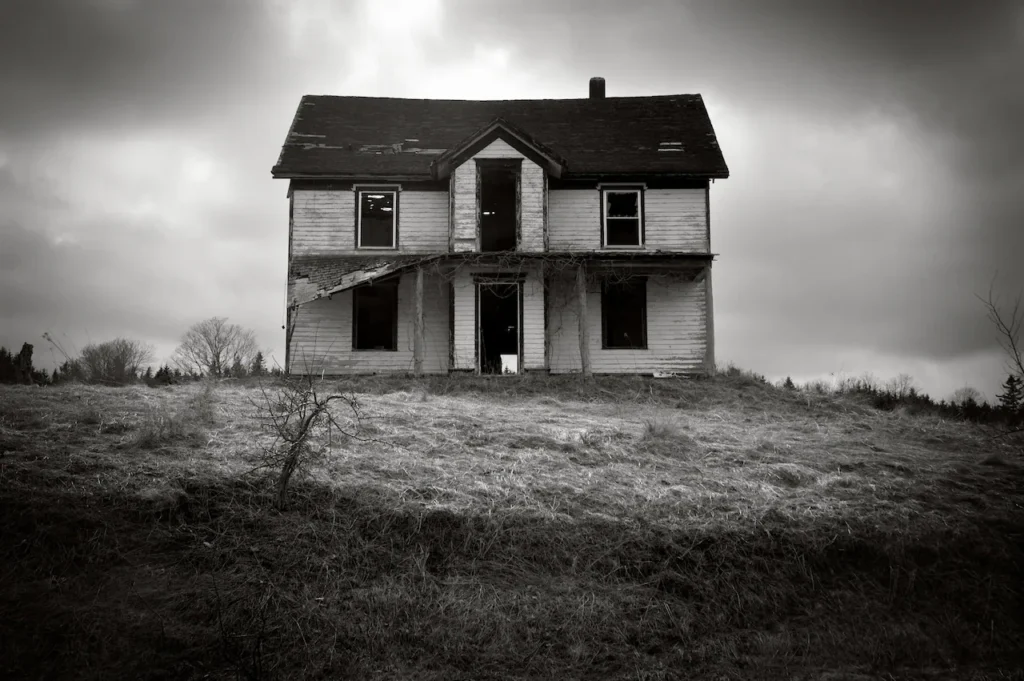
The Benefits of Joining a Horror Writing Community
Horror writing can be an incredibly rewarding and thrilling genre to explore, but it can also be a lonely and challenging pursuit like most forms of writing. Fortunately, there is a growing local and global horror writing community that can provide both support and inspiration for writers looking to improve their craft.
You just have to know where to look.
Joining a horror writing community has numerous benefits, from access to valuable feedback and critiques to the opportunity to connect with like-minded individuals who share your passion for horror.
Whether you are just starting out or are a seasoned veteran of the genre, a horror writing community can provide you with the tools and support you need to take your art to the next level.
What is a horror writing community?
It’s simple: A horror writing community is a group of writers who share a passion for horror and provide support each other in their writing endeavours.
This community can take various forms, from in-person writing groups to online forums, social media groups, and writing communities on platforms like Discord or Reddit. In a horror writing community, writers share their work, exchange feedback and critiques, and participate in writing challenges and prompts.
Many horror writing communities offer resources and guidance for writers seeking to improve their craft, such as writing workshops, articles, and tips on topics like plot development, characterization, and pacing. In addition, they can provide publishing opportunities, networking events, and other resources that help writers advance their careers in the horror genre.
Whether you’re a new writer looking to learn the ropes, or an experienced author seeking to connect with other horror enthusiasts, a horror writing community can be a valuable resource. By joining a community of like-minded individuals, you should gain inspiration, motivation, and the support you need to hone your craft.

Benefits of joining a writing community
- Support and encouragement: Writing can be a solitary pursuit, and it can be challenging to stay motivated and inspired without a support system. In a horror writing community, you’ll find other writers who share your passion and offer encouragement and advice along the way.
- Feedback and critique: One of the most significant benefits of joining a horror writing community is the opportunity to receive feedback and critiques from other writers who understand what you’re trying to do. This feedback should help you identify areas where you can improve your writing and give you valuable insights into your strengths and weaknesses.
- Opportunities to learn: Horror writing communities often offer resources and workshops to help writers improve their skills and stay up to date with the latest trends and techniques in the genre.
- Networking: You’ll have the opportunity to connect with other writers, publishers, and industry professionals who can help you advance your career.
- Inspiration: Being part of a horror writing community can be incredibly inspiring. You’ll have access to a constant stream of new ideas, prompts, and challenges that help you generate fresh ways of doing things and push your writing in new directions.
- Collaborative projects: Many communities offer opportunities for collaboration, such as group writing projects or anthologies. Collaborating with other writers can be a great way to learn from others, improve your writing, and build your portfolio.
- Publishing opportunities: Horror writing communities often provide publishing opportunities, such as contests, anthologies, and other writing opportunities that can help you get your work out into the world.
How to find a community
If you’re interested in joining a horror writing community, there are several ways to find one that’s right for you:
- Online searches: A simple Google search should yield numerous results for horror writing communities, including forums, social media groups, and writing communities on platforms like Discord or Reddit as well as in-person groups local to you.
- Social media: Social media platforms like Twitter, Facebook, and Instagram are great places to connect with other writers and find horror writing communities. Many horror writers and organizations have a social media presence and regularly post updates and resources for writers.
- Writing associations: There are several writing associations dedicated to the horror genre, including the Horror Writers Association, the International Association of Horror Writers, and the Horror Writers of America. These associations offer membership benefits such as access to resources, networking opportunities, and publishing opportunities.
- Writing conferences and events: Attending writing conferences and events can be an excellent way to connect with others who share your passion and find horror writing communities. Many conferences and events offer panels, workshops, and networking opportunities specifically geared toward horror writers.
- Local writing groups: Check with your local library, bookstore, or community centre to see if there are any local writing groups in your area. Many ordinary writing groups also welcome horror writers and offer a supportive environment for writers of all levels.
- Word of mouth: Ask other horror writers you know if they are part of a writing community or if they know of any horror writing communities that might be a good fit for you. Word of mouth can be an excellent way to find writing communities that might not be easy to find through online searches.
Online vs.in-person horror writing communities
Both types of communities offer unique benefits, and the decision of which to join ultimately comes down to personal preference and availability. Below are some of the key differences between online and in-person horror writing communities:
Online horror writing communities:
- Convenience: Online communities offer the convenience of being able to connect with other writers from the comfort of your own home. This can be especially beneficial for writers who live in remote areas or who have busy schedules.
- Flexibility: Online communities often have flexible schedules and can be accessed at any time. This means that writers can participate in discussions, exchange feedback, and share work whenever it’s convenient for them.
- Diversity: Online communities can attract writers from all over the world, which can lead to a more diverse range of perspectives and ideas.
- Anonymity: Online communities can offer a degree of anonymity, which can be helpful for writers who are shy or who prefer to keep their writing separate from their personal life.
In-person horror writing communities:
- Camaraderie: In-person communities offer the opportunity to connect with other writers face-to-face and build lasting friendships. This can be especially beneficial for writers who crave social interaction and who enjoy the energy of group discussions.
- Immediate feedback: In-person communities offer the benefit of immediate feedback on your writing. You can read your work aloud and get instant feedback from other writers in the room.
- Accountability: They offer a level of accountability that online communities may not. When you commit to attending an in-person writing group, you’re more likely to follow through and produce work than if you were participating in an online community. It’s just human nature
- Shared experiences: In-person communities offer the opportunity to share experiences like attending writing events, book signings, and readings together. These shared experiences can create a sense of camaraderie and help writers feel more connected to the writing community as a whole.
How to participate in a horror writing community
Participating in a horror writing community can be a great way to improve your writing, connect with other writers, and stay motivated. Here are some tips on how to get the most out of it:
- Introduce yourself: When you first join a horror writing community, be sure to introduce yourself. Let the other members know who you are, what you write, and what your goals are as a writer.
- Be active: This means participating in discussions, offering feedback on other writers’ work, and sharing your own writing for feedback.
- Respect others: It’s really important to be respectful of other writers and their work. Offer constructive feedback and avoid personal attacks or negative comments.
- Attend events: If your horror writing community offers in-person events, such as readings or workshops, be sure to attend. These are valuable networking opportunities and the chance to learn from other writers.
- Share resources: If you come across a resource that you think other horror writers would find useful, share it with the community. This can include books, articles, podcasts, or anything else related to horror writing.
- Ask for help: If you’re struggling with your writing or need help with a specific aspect of the craft, don’t be afraid to ask for help. Horror writing communities are filled with experienced writers who are happy to offer advice and support.
- Give back: This means offering feedback on other writers’ work, sharing your own resources and experiences, and volunteering to help with community events.
Tips for giving and receiving feedback
It can be challenging to navigate the process of giving and receiving feedback in a community where the subject matter can be quite sensitive and personal:
- Be constructive: When giving feedback, focus on constructive criticism rather than tearing down the writer or their work. Point out areas where the writer can improve their writing and offer suggestions for how they can do so.
- Be specific: Provide specific examples of what works and what doesn’t work in the writing. This will help the writer understand what changes they need to make to improve their work.
- Be respectful: Horror writing can be very personal, so be mindful of how you phrase your feedback. Make sure to be respectful and sensitive to the writer’s feelings while still offering helpful criticism.
- Be honest: Honesty is essential when giving feedback. Don’t sugar-coat your feedback or hold back from offering constructive criticism. However, make sure to be tactful and respectful in your delivery.
- Be supportive: Encourage the writer and offer positive feedback when appropriate. Let them know what they’re doing well and what they can build on in their writing.
Tips for Receiving Feedback:
- Be open-minded: Be open and willing to accept constructive criticism. Remember that this is meant to help you improve your writing.
- Don’t take it personally: It’s easy to take feedback personally, but remember that it’s about the writing, not you as a person. Try to detach your emotions from the feedback and focus on the constructive criticism.
- Ask questions: If you don’t understand the feedback, ask questions to clarify what the reviewer is suggesting. This will help you better understand what changes you need to make to improve your writing.
- Take time to reflect: Don’t rush to make changes based on feedback. Take time to reflect on it and determine which suggestions will be most helpful for your writing.
- Be grateful: Thank the reviewer for their feedback, even if you don’t agree with all of it. Remember that they took the time to read and offer feedback on your work, which is a valuable gift.
Horror writing prompts and challenges in a community
Horror writing prompts and challenges are a great way to engage a community of horror writers and encourage them to create new and exciting stories. Here are some ideas to get you started:
- “The Haunted House”: Write a story about a haunted house, but the twist is that the ghosts aren’t the only thing haunting the characters.
- “The Experiment”: Write a story about an experiment gone wrong. The protagonist is a scientist who has created something that has gone out of control.
- “The Monster”: Write a story about a monster that lives in the woods. The protagonist is a young child who has to confront the monster.
- “The Apocalypse”: Write a story about the end of the world. The protagonist is a survivor who has to navigate a post-apocalyptic landscape.
- “The Possession”: Write a story about a possessed object. The protagonist is someone who has to deal with the consequences of the object’s influence.
- “The Unexplained”: Write a story about an unexplained phenomenon. The protagonist is someone who is trying to figure out what’s going on.
- “The Ritual”: Write a story about a ritual gone wrong. The protagonist is someone who has to deal with the consequences of the ritual.
- “The Curse”: Write a story about a cursed object. The protagonist is someone who is affected by the curse.
- “The Abandoned”: Write a story about an abandoned place. The protagonist is someone who explores the abandoned place and discovers something they shouldn’t have.
- “The Transformation”: Write a story about a transformation. The protagonist is someone who undergoes a transformation, whether physical or mental.
Publishing opportunities in a horror writing community
Horror writing communities, particularly those online, offer a wealth of publishing opportunities for writers looking to get their work out into the world.
- Online Literary Magazines: There are many online literary magazines that focus specifically on horror, such as Dark Moon Digest, Black Static, and Nightmare Magazine. Writers can submit their short stories, poetry, and other works of horror to these publications for consideration.
- Anthologies: Horror anthologies are collections of short stories, often with a common theme. There are many publishers that specialize in horror anthologies, such as Cemetery Dance Publications and Crystal Lake Publishing. Many of these publishers have open calls for submissions, which writers can submit their work to.
- Self-Publishing: With the rise of self-publishing platforms like Amazon’s Kindle Direct Publishing and Barnes & Noble’s Nook Press, writers can now publish their own horror novels and short story collections without the need for a traditional publisher.
- Contests: Many horror writing contests are available for writers to enter, such as the Horror Writers Association’s Bram Stoker Awards and the Creepy Pasta Writing Contest. These contests often offer cash prizes, publication opportunities, and exposure for the winning entries.
- Literary Agents: Literary agents can be an excellent resource for horror writers looking to get published. Agents can help writers find publishers and negotiate publishing contracts on their behalf.
- Small Presses: There are many small presses that specialize in horror, such as Raw Dog Screaming Press and Crossroad Press. These publishers often have open calls for submissions and can provide an excellent platform for new and emerging horror writers.
- Traditional Publishers: Finally, traditional publishers are still an option for horror writers. Many publishers, such as Tor Books and HarperCollins, have dedicated horror imprints and are always looking for new and exciting horror writers to publish.
Collaborative writing projects in a community
Collaborative writing projects can be a great way to bring members of a horror writing community together and create something unique and exciting.
- Anthologies: Horror anthologies can be a great collaborative writing project. Members of the community could come together to create a collection of short stories or poetry, with each member contributing one or more pieces to the anthology.
- Serial Fiction: Serial fiction is a great way to keep readers engaged and excited about a story. Members of the community could come together to write a serial fiction story, with each member contributing a chapter or installment to the story.
- Roleplaying Games: Roleplaying games, such as Dungeons & Dragons, can be a great way to create collaborative storytelling experiences. Members of the community could come together to create a horror-themed roleplaying game, with each member taking on the role of a character in the story.
- Collaborative Novels: Collaborative novels are a unique and challenging writing project. Members of the community could come together to create a horror novel, with each member contributing a section or chapter to the story.
- Scriptwriting: Horror movies and TV shows are always popular, and members of a horror writing community could come together to create a horror script. Each member could contribute to the writing of the script, with the final product being a collaborative effort.
- Worldbuilding: Creating a detailed and immersive horror world can be a fun and engaging collaborative writing project. Members of the community could come together to create a shared horror world, with each member contributing to the mythology and lore of the world.
Conclusion
If you are an aspiring horror writer, joining a horror writing community can be incredibly beneficial for your growth and development as a writer. The horror genre is unique and requires a particular set of skills and knowledge to master, and a writing community focused on horror can provide you with the support, resources, and feedback necessary to improve your writing.
One of the most significant advantages of joining a horror writing community is the opportunity to connect with other writers who share your passion for the genre. These writers can offer you guidance and support as you navigate the often-challenging world of horror writing, and they can also provide you with valuable feedback on your work. A writing community can be an excellent source of motivation and inspiration, helping you stay focused and committed to your writing goals.
In addition to connecting with other writers, a horror writing community can also offer you access to valuable resources, such as writing prompts, reading lists, and writing tips. You may also have the chance to attend workshops or conferences focused on horror writing, which can provide you with opportunities to learn from established authors and industry professionals.
Are you a member of a horror writing community? Tell us about it in the comments section below.

